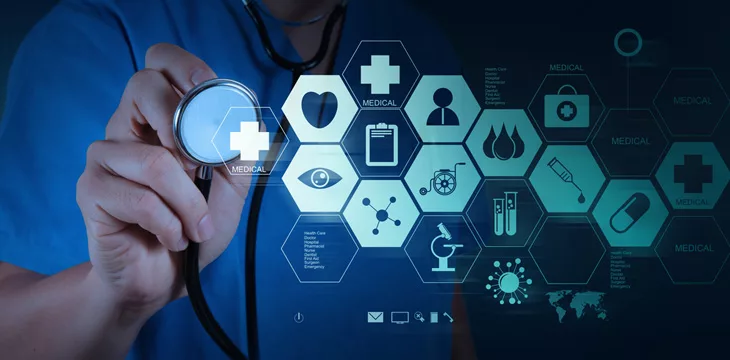|
Getting your Trinity Audio player ready...
|
As artificial intelligence (AI) continues to evolve, the technology has found applicability in several sectors, with the latest deployment coming in healthcare.
Global medical technology firm iCAD (NASDAQ: ICAD) has announced a review of a partnership with Google Health (NASDAQ: GOOGL) to include a clause allowing for an integration of Google AI’s technology. The original collaboration involved a development and commercialization agreement for iCAD’s ProFound Breast Health Suite.
iCAD is seeking to gain “independent reader” approval for its offering designed to detect cancer cells while improving the existing workflow for radiologists.
The new amendment to the partnership will see the deployment of AI into its deep-learning cancer detection solution. Integrating AI will reduce unnecessary recalls, false positives while improving efficiency, according to iCAD CEO Dana Brown.
“Combining Google’s artificial intelligence (AI) technology with our leading-edge ProFound Breast Health Suite of AI solutions will enhance our technology and expand access to the technology to millions of women and providers worldwide,” Brown said.
“Furthermore, Google has already been exploring the use of its technology as an independent reader, with extremely promising results,” she added.
She stated that AI integration allows patients to spot cancers earlier, giving them a higher chance of survival. Brown disclosed that the New Hampshire-based firm will be rolling out the AI-powered breast cancer detection solution to individuals from developing countries “at no cost.”
Google’s AI has already found success in spotting cancer cells following a 2020 study where it surpassed human radiologists by an impressive 11.5%.
Last month, a group of U.S. researchers launched an AI model using large language models (LLMs) to anticipate the effect of drug combinations in cancer patients. Dubbed CancerGPT, the model relies on 124 million parameters, recording high levels of accuracy in preliminary studies.
Researchers are pushing the frontiers of the integration of AI and healthcare, with one group launching Ankh, a protein language model that can predict the behaviors of proteins.
Integrating innovative tools like blockchain technology into healthcare offers the benefits of accurate healthcare history for patients with the perks of interoperability.
Regulations may stunt AI innovation
For all the benefits offered by AI, there are fears of misuse of the technology by bad actors, forcing regulators to take preemptive action. In the European Union, an AI Act is nearing completion imposing blanket bans on predictive policing systems and real-time remote biometric identification systems.
AI developers have described the provisions of the incoming AI rules as being too restrictive, noting that it could slow down the pace of innovation. Open-source AI developers are also lending their voices to the call for looser regulations while consumer groups remain wary of the threat to privacy.
In order for artificial intelligence (AI) to work right within the law and thrive in the face of growing challenges, it needs to integrate an enterprise blockchain system that ensures data input quality and ownership—allowing it to keep data safe while also guaranteeing the immutability of data. Check out CoinGeek’s coverage on this emerging tech to learn more why Enterprise blockchain will be the backbone of AI.
Watch: Health care, life sciences, and blockchain

 02-17-2026
02-17-2026 




